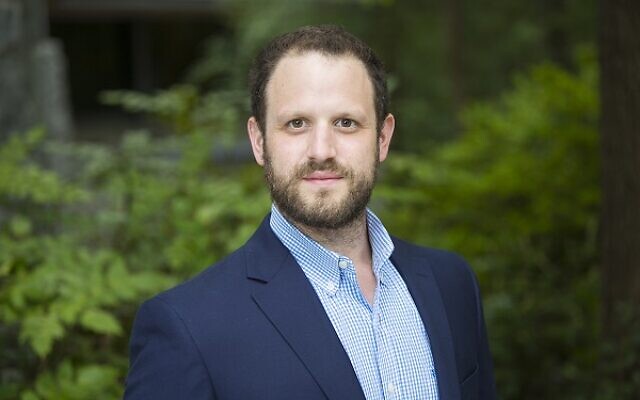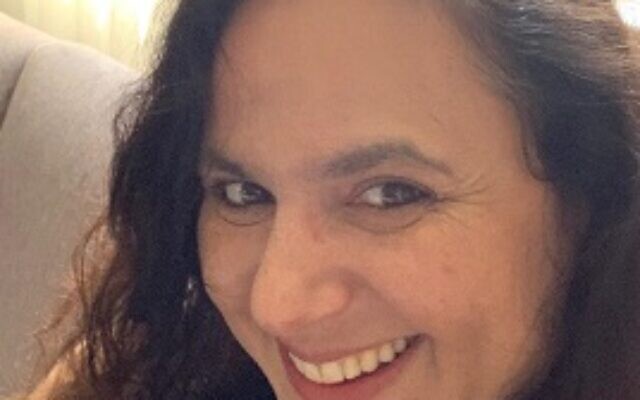New Israeli Government: More Religious and Right-Wing
For years, many Israelis have wryly described their country as one in which one-third of the population serve in the army, one-third have jobs and one-third pay taxes. The only problem, they say, is that it is the same one-third.

For years, many Israelis have wryly described their country as one in which one third of the population serve in the army, one third have jobs and one third pay taxes. The only problem, they say, is that it is the same one third.
And now these Israelis are probably noting that the anticipated makeup of the next government coalition will truly reflect that sardonic assessment. For while the outcome of the Israeli Nov. 1 election shows the return of former Prime Minister Benjamin Netanyahu, the expected composition of his next government will be vastly different from the governments he led from 1996-1999 and then from 2009 to 2021. In all previous governments, his party was flanked by parties both on his right and on his left.
While the establishment of the next Israeli government is still in its beginning phases, much is already clear. With the final votes counted, giving Netanyahu’s bloc a strong majority of 64 seats in the 120-seat legislature or Knesset, President Isaac Herzog has until Nov. 16 to ask Netanyahu to form a coalition government. Reports indicate that Netanyahu has already begun the negotiations with the parties that formed his electoral bloc.

If no spokes are thrown into the wheel, the next government will be composed primarily of Orthodox religious parties, with 32 of the 64 seats belonging to the Religious Zionism, Shas and United Torah Judaism parties. If one breaks down the religious leanings of some of Netanyahu’s Likud party, that number would grow.
According to Alon Pinkas, a former Israeli consul general in New York City from 2000-2004, writing in the Israeli newspaper Ha’aretz, “the following is what Israel will get in the new coalition. People who didn’t serve in the military will decide on matters of peace and war. About half the men in this community don’t work and pay taxes, but their representatives will be managing the economy. People who broke laws and committed crimes will ‘reform’ the judiciary, and people who never studied history, math or English will run the education system.”
Pinkas could also add that there are fewer women in this anticipated coalition because the religious parties don’t allow women on their voting slates. But he is referring to the fact that most supporters of Shas and United Torah Judaism don’t serve in the military. Many don’t work; they study. The religious schools supported by these parties often don’t teach the core subjects of math, science and English, not preparing their students for jobs in Israel’s high-tech economy.
He was also referring to the fact that Netanyahu is currently on trial in several corruption cases, including bribery, fraud and breach of trust. In 1999, Shas leader Aryeh Deri was sentenced to three years in prison for bribery, fraud and breach of trust. Late last year, Deri resigned from the Knesset in a plea deal on tax related charges.

“We are at the beginning of the sausage being made,” said Eli Sperling, the Israel Institute Teaching Fellow in the Department of International Affairs at the University of Georgia. “This is very complicated,” he said, explaining how coalition agreements are secured. “These will be very nuanced discussions.”
One of the most controversial members of Netanyahu’s bloc is Itamar Ben-Gvir, head of Otzma Yehudit, or Jewish Power, an extreme right-wing group that ran in the election as part of the Religious Zionism bloc. Ben-Gvir was once convicted of incitement to racism. He is eager to be named Public Security Minister, responsible for the police who more than once investigated him.
“Ben-Gvir is giving his opening positions” of what he wants in the next government, said Sperling, implying that the first demands of various parties in coalition building are not always satisfied. Religious Zionism, headed by Bezalel Smotrich, now the country’s third largest party, wants to head the Defense Ministry.
Just days after the election, Sperling said, “We don’t know what will make it into the coalition agreement. Netanyahu may say things that he will do to satisfy the right,” and yet he might not do them. Sperling recalled that in the 2020 election, Netanyahu talked about annexing the West Bank and yet, when given the chance, he didn’t. “We’ve seen him make extreme promises that he didn’t follow through on.”
Cheryl Dorchinsky, founding executive director of the Atlanta Israel Coalition, said she’s glad that her organization is non-partisan. “We believe politics divides us.” Along with 20 other travelers from around the U.S. and Australia, representing several religions, ages and colors, Dorchinsky was heading to Israel where she could watch the outcome of the election transform into a new government.
Most American Jews are watching that process from afar and wondering how it might impact them. Sperling anticipates that with a strong Orthodox influence in the next government, there might be more restrictions on which rabbis in the Diaspora are allowed to provide conversions acceptable to the Israeli religious authorities. Certainly, the non-Orthodox majority of American Jews will again be disappointed by the lack of more egalitarian worship at the Western Wall, something that the Orthodox parties in Israel squashed under a previous Netanyahu government.
American Jews “don’t want to see Israel become an Iran or Taliban state,” said Sperling, although some Israel writers have noted a shift to theocracy in the country.
There’s also a tendency to place Israeli voters into a left-right dichotomy but the reality is much more complex. Because Netanyahu is fighting serious charges in court that could send him to prison, the last few elections have been divided into an anti-Netanyahu bloc and a pro-Netanyahu bloc. But even that is complicated. As Dahlia Scheindlin, a public opinion expert at Century International in Tel Aviv, pointed out, two parties in the anti-Netanyahu bloc include right-wing politicians like former Likud Gideon Sa’ar – now head of New Hope — and Yisrael Beitenu’s Avigdor Lieberman.
On election day, Shas leader Aryeh Deri drew another dividing line that may spark concern, or at least questions, among American Jews. “Today is the fateful battle, the fight between a Jewish state or an Israeli state. Anyone who wants a Jewish state should wake up and vote.”
Scheindlin, in a webinar hosted by several liberal American Jewish groups, said she anticipated that the next government would initiate several new policies that won’t sit well with many in the American Jewish community. These include an over-ride law that would weaken the Israel Supreme Court, “regularize” the settlements in the West Bank, and erase fraud and breach of trust crimes from the country’s law books – thereby ridding Netanyahu of those charges.
Noting the anxieties among the American Jewish community over the recent Israeli elections, and wanting his students studying Israeli politics to get an Israeli viewpoint, Sperling has invited outgoing Diaspora Minister Nachman Shai – and one-time visiting professor at Emory University — for a webinar on Nov. 17 at 10 a.m. [You can join the webinar with the Zoom registration link: https://zoom.us/webinar/register/WN_lQhkQXX6Q02LgpY6e1qgYQ]
- Israel news
- politics
- Jan Jaben-Eilon
- Prime Minister Benjamin Netanyahu
- Knesset
- President Isaac Herzog
- Religious Zionism
- Shas and United Torah Judaism
- Likud
- Alon Pinkas
- Haaretz
- Aryeh Deri
- Eli Sperling
- Israel Institute Teaching Fellow in the Department of International Affairs
- University of Georgia
- tamar Ben-Gvir
- Bezalel Smotrich
- Cheryl Dorchinsky
- Atlanta Israel Coalition
- Diaspora
- Western Wall
- Dahlia Scheindlin
- Century International



comments